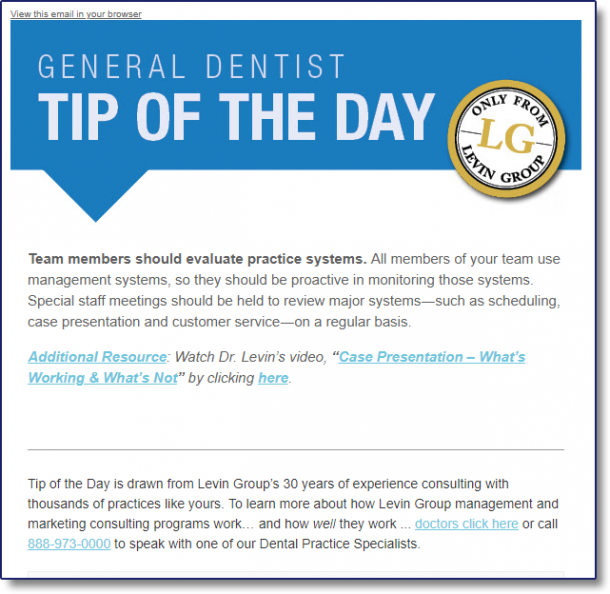That’s an easy one––don’t listen to them. People find it infuriating when they’re ignored especially by the person they’re talking to. In a dental practice, this happens when staff members fail to give patients their undivided attention by multi-tasking, answering phones, texting, talking to their colleagues, looking at their computers, etc.
Active listening is a physical activity. It takes focus and energy to listen to someone and not do anything else. Even routine requests require active listening. If patients feel that the practice doesn’t value their time, there’s a good chance they won’t be back.
The Impact of Not Listening
I recently spoke to a dentist who was upset because his front desk coordinator had cost the practice a patient and her family. The mother was trying to schedule her three children for appointments. She told the staff member that she needed to leave quickly to pick up one of her kids. The front desk coordinator kept stopping to answer the phone and talking with callers before returning to the waiting patient. After the third call, the mother canceled all of our appointments and stormed out of the office. It’s obvious that the mother felt that customer service was less than satisfactory, but she also felt she wasn’t being heard.
Scenarios like this happen every day in dental practices. During interactions with dentists and staff, patients want to feel they are your #1 priority. They don’t want to repeat things two or three times, be put on hold endlessly, or be left in the treatment room unattended for 10 minutes. All of these are great ways to lose patients quickly.
How do you actively listen? Here are a few key tips:
- Always look directly at patients when they are speaking. This will keep you from multi-tasking and reassure them that you are focused on them.
- Repeat and summarize what they said. For example start the sentence with “So what I hear you saying is ….”
- Ask questions if clarification is needed. For example, “So you would prefer a Tuesday afternoon over a Thursday morning?”
- Nod and smile at patients when they are speaking. Even leaning forward creates a positive energy and a sense of listening.
Additional Resource
Download Dr. Levin’s free whitepaper Stage III Customer Service by clicking here.
[thb_button link=”https://levingroup.com/practicesuccess/” class=”pull-right” style=”” rounded=”” color=”black” icon=”” size=”medium” animation=”right” ]Back to Practice Success Archive »[/thb_button]
